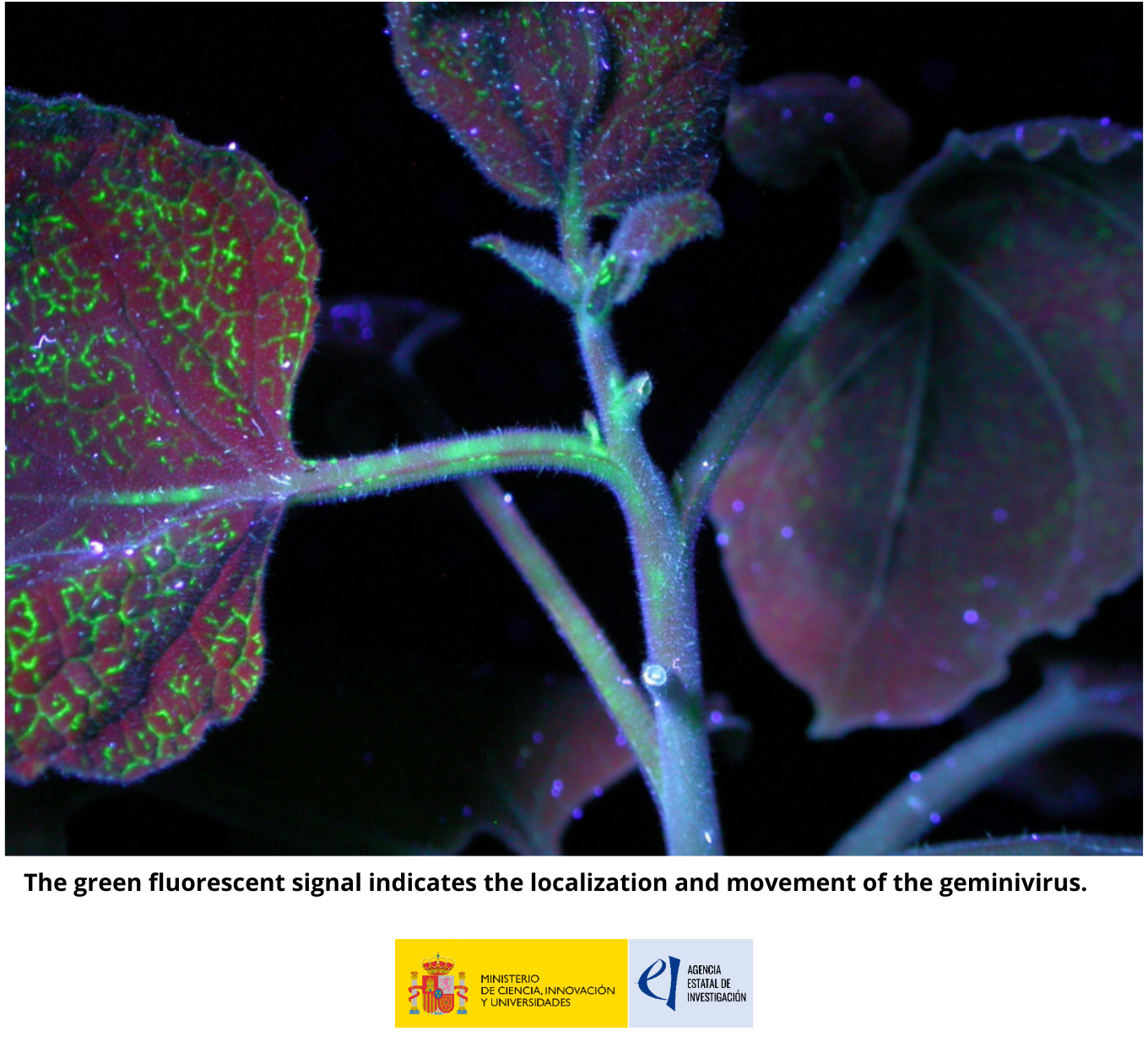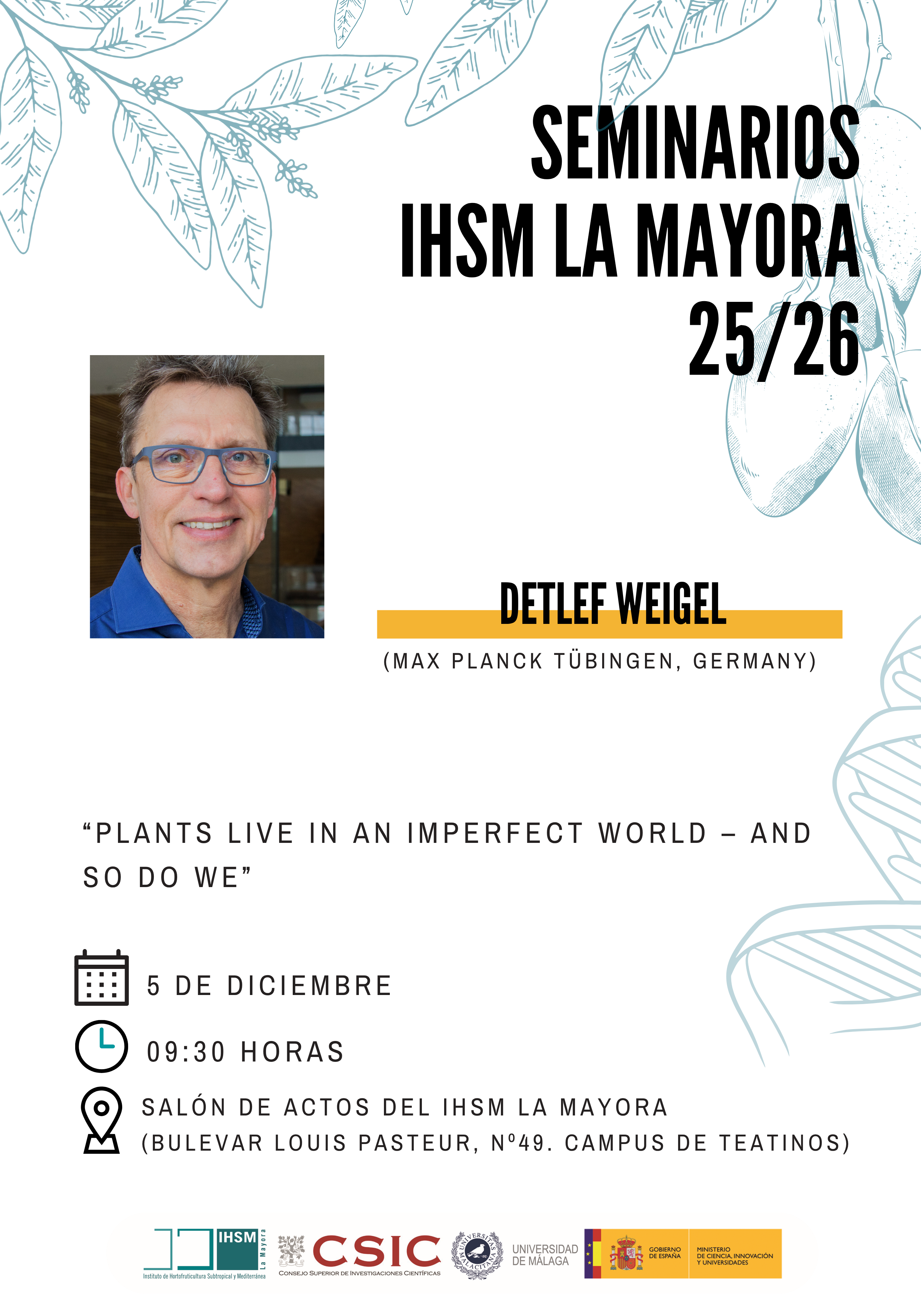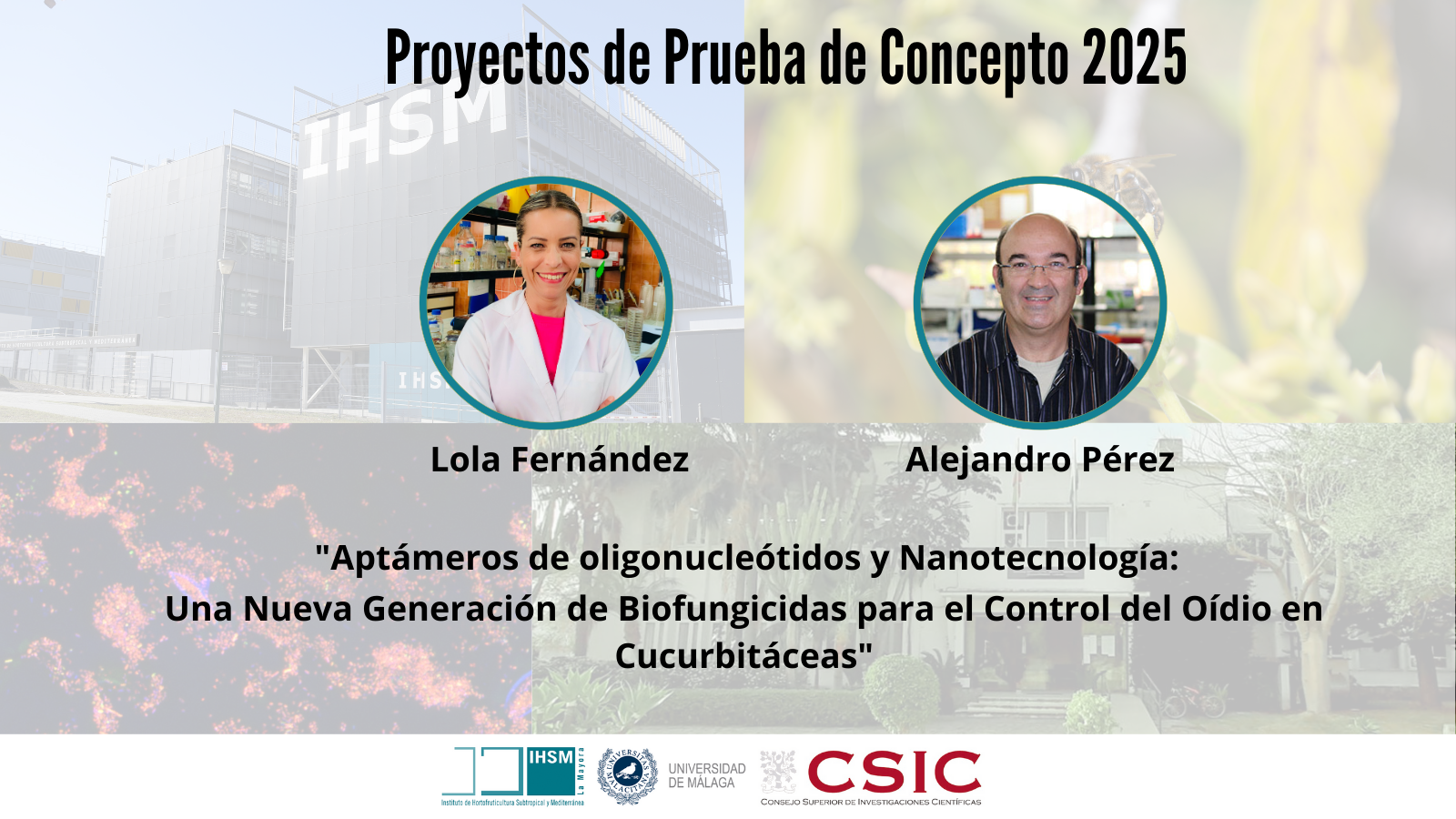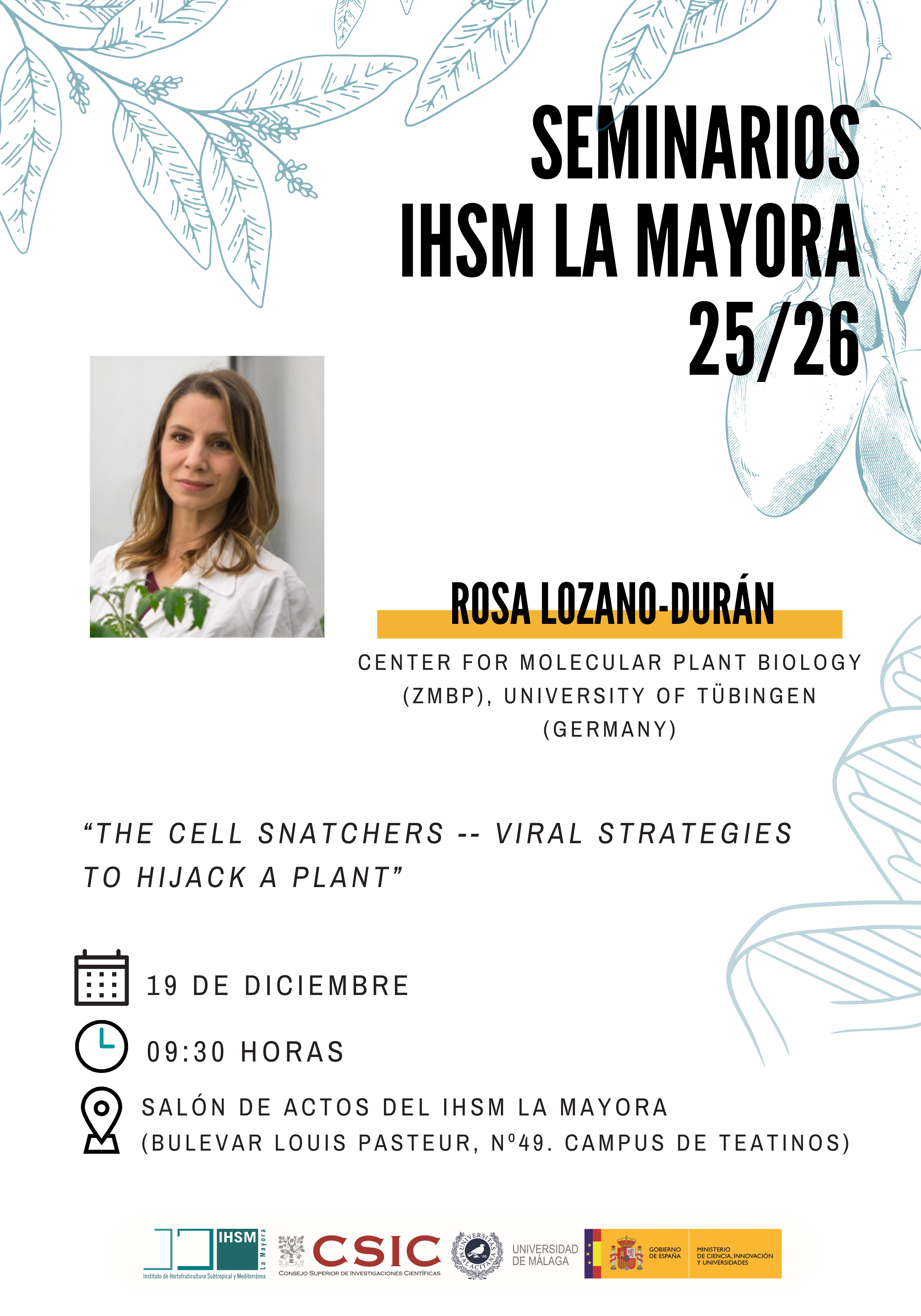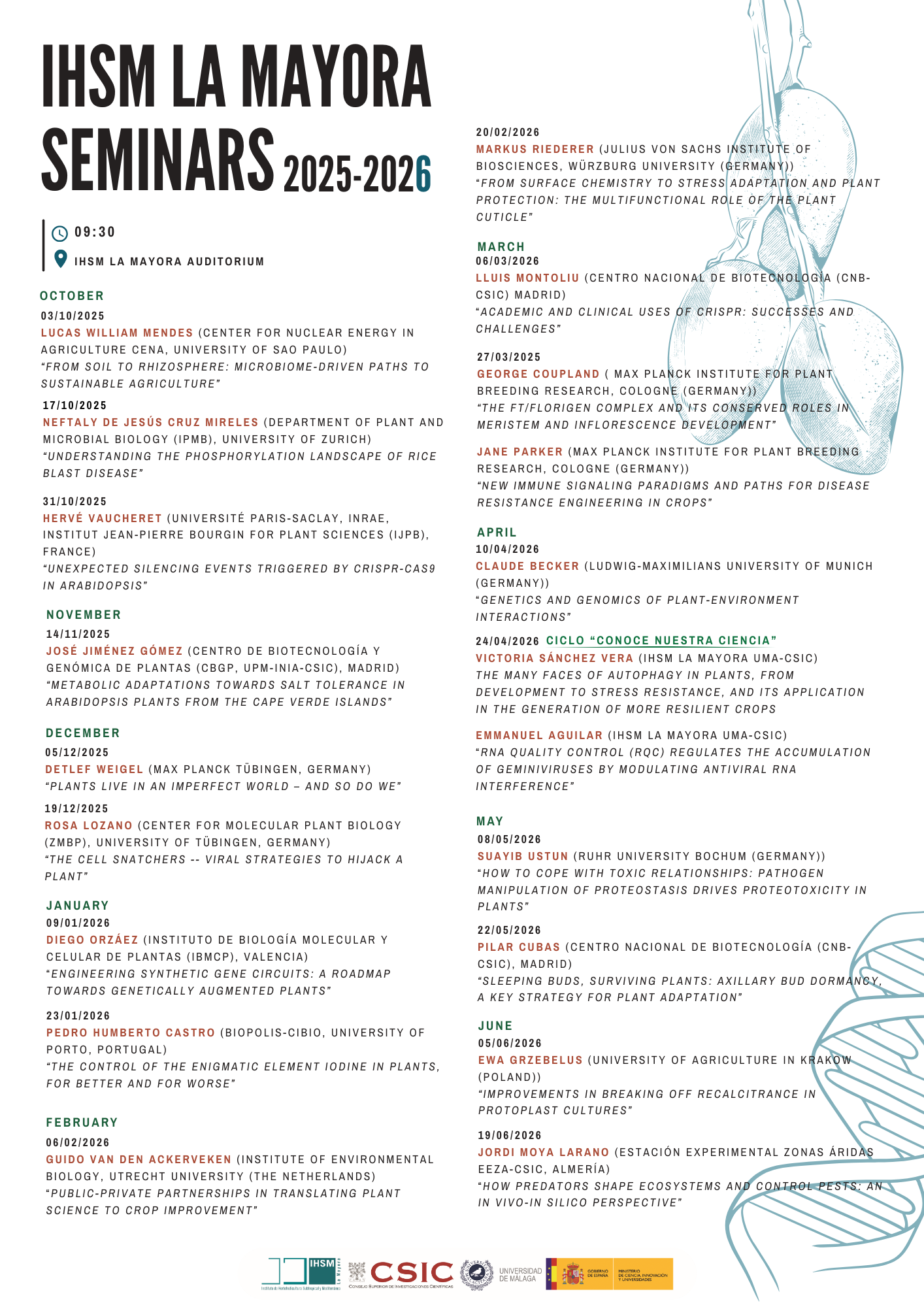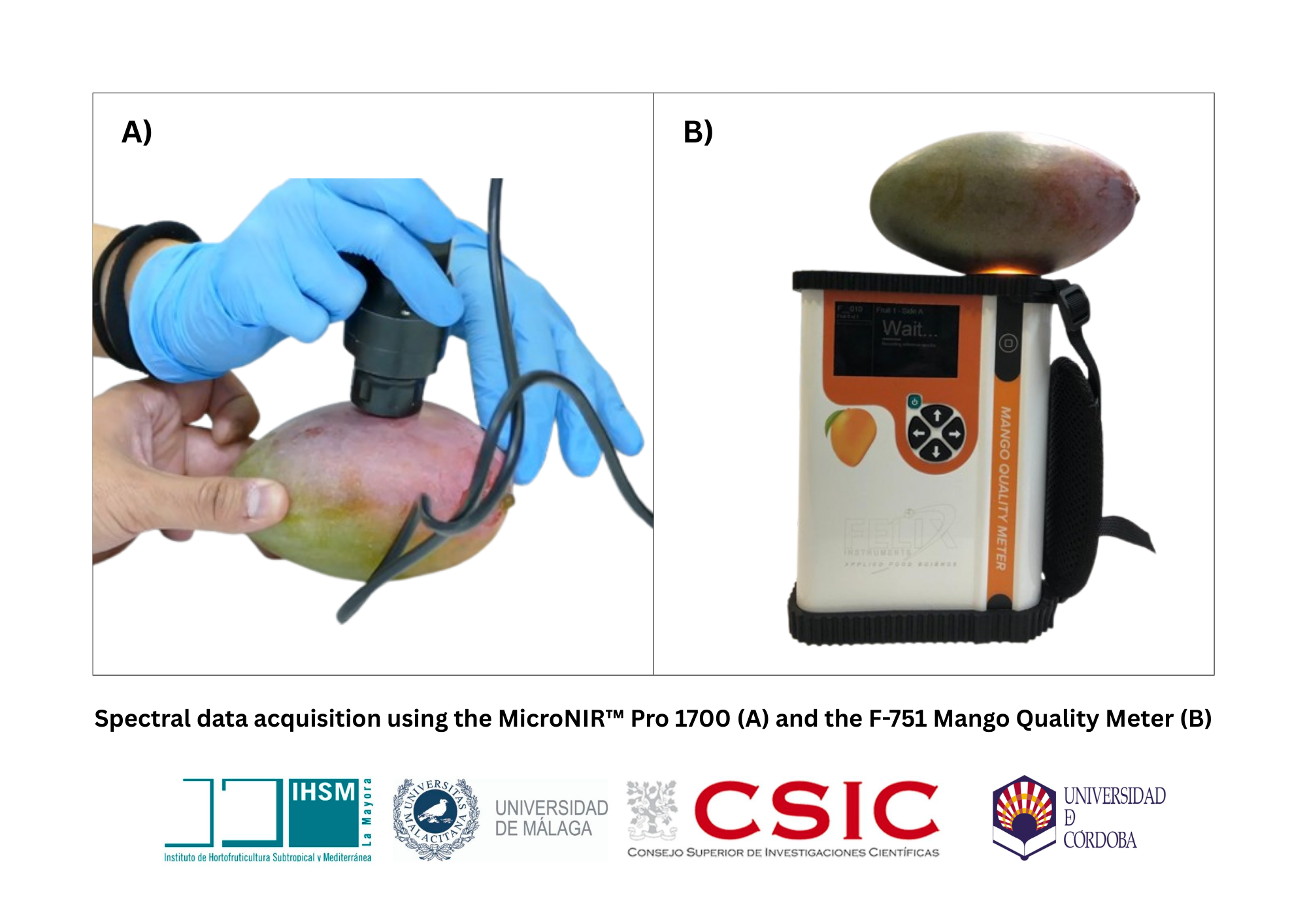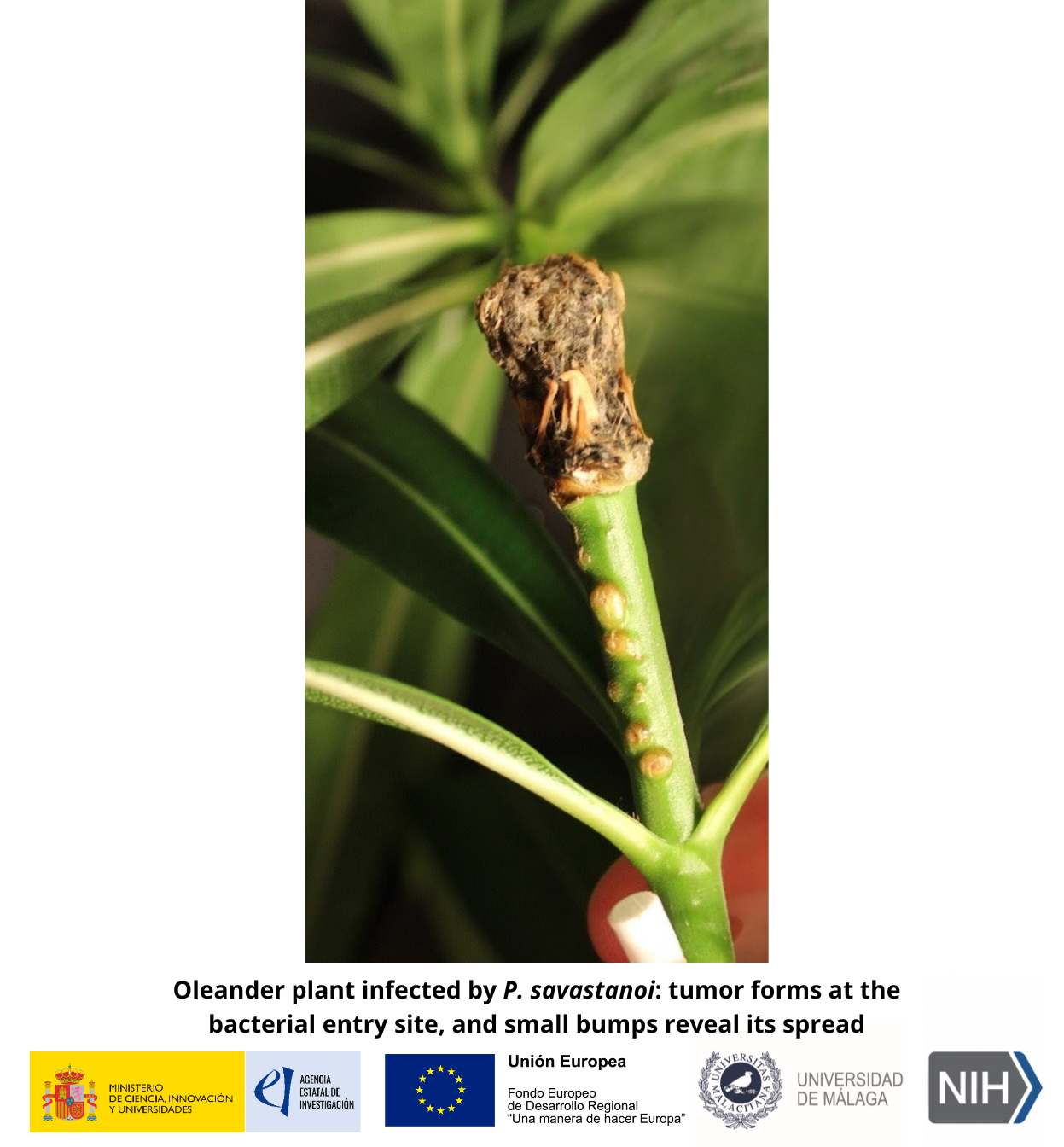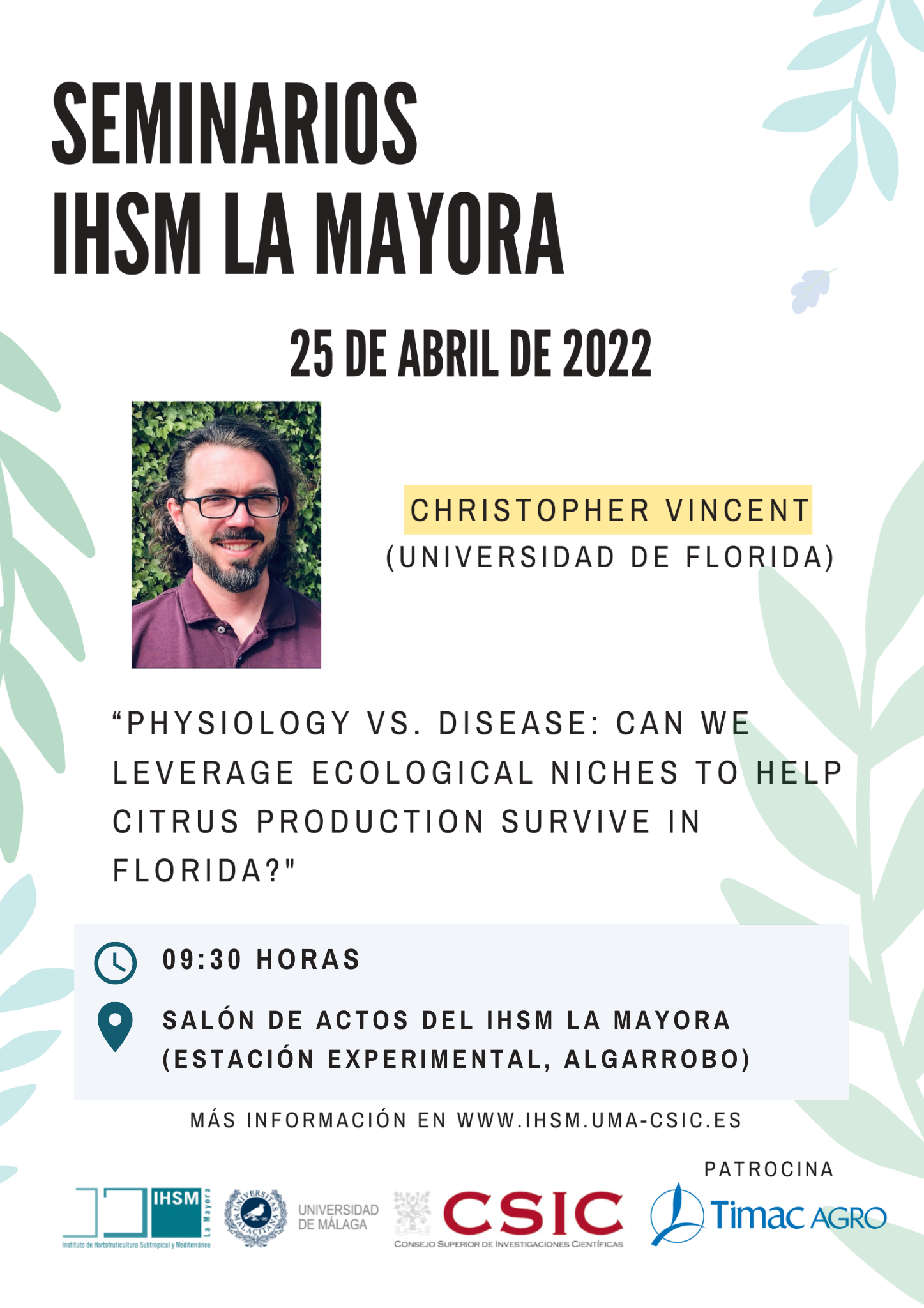
Seminarios IHSM La Mayora - Christopher Vincent (Universidad de Florida)
Abstract Citrus is one of the most widely-consumed fruit crops and is native to forest regions in the humid subtropics of Southeast Asia. Despite the citrus industry thriving in the high-temperature, high-light environment of Florida, citrus tree growth optimum is in partial shade, similar to its evolutionary ecological niche. Citrus production in Florida faces the challenge of a now-endemic introduced disease, called citrus greening. Greening is caused by an insect-transmitted phloem-limited bacterium, and induces sugar transport disfunction, leading to high-light stress due to feedback inhibition of carbon fixation and due to reduced root function. We studied how disease dynamics function in unplanted citrus in a natural forest area. We found that shade both inhibited disease transmission and enhanced leaf help. We then tested strategies to manipulate the light environment around production field trees. We found that different shading strategies can improve growth and yield and may inhibit transmission in the field as well. I will discuss how aligning the environment with citrus evolutionary niches can enhance production resilience and productivity under challenges from citrus greening. Biography Research summary My group investigates how plants manage carbon and water movement and photosynthesis in response to environmental factors such as light, temperature, and water supply. Our primary focus is on the subtropical perennial genus, Citrus, and we research both fundamental biological and applied approaches to improve production. Because of the specific challenges facing citrus production, we collaborate broadly to address citrus huanglongbing (“citrus greening disease”). Our methods focus on photosynthesis and carbohydrate transport and allocation at the whole-plant level. Personal background Christopher Vincent began in liberal arts with studies of Spanish and journalism in Arkansas and Chile.After working in extension and research on fruit and nut crops in Arkansas, he obtained a PhD in Interdisciplinary Ecology and the University of Florida, focusing on plant environmental physiology. He now works at the University of Florida, focusing on citrus and other perennial species.

